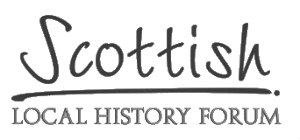Scotland and the Flemish People - Conference
When & Where
Event Details
An international conference will take place on Thursday, June 16th and Friday, June 17th, 2016 in St Andrews to mark the conclusion of the Scotland and the Flemish People Project.
The event is sponsored by the Government of Flanders, the P F Charitable Trust and the Wyfold Charitable Trust.
The conference will be open to the general public. It will be of interest to academic and local historians, family historians, genealogists, and genetic genealogists. There will be two tracks within the conference so that participants will be able to choose the sessions they want to attend.
Registration is via the conference website: www.eventsforce.net/scotflem. For all other queries please contact Dr Claire Hawes at scotflem2016@st-andrews.ac.uk
See attached flyer.
The Flemings were known throughout western Europe as people skilled in a wide variety of occupations. In 1188 Gerald of Wales, reflecting on the settlement in that area of a significant number of Flemings, described them as:
"a brave and sturdy people […] a people skilled at working in wool, experienced in trade, ready to face any effort or danger at land or sea in pursuit of gain; according to the demands of time and place quick to turn to the plough or to arms; a brave and fortunate people."
The question under consideration here is what might have led them to migrate to Scotland. Although the primary impulses for this may be broadly grouped into feudal, economic, and religious categories, the reality was much more nuanced.
Flemings’ international trade links were a major factor in their migration to Scotland. St Margaret, Queen of Scotland (d.1093) is recorded as having encouraged the immigration of foreign merchants.
It was due to her that the merchants who came by land and sea from various countries brought along with them for sale different kinds of precious wares which until then were unknown in Scotland. And it was at her instigation that the natives of Scotland purchased from these traders clothing of various colours, with ornaments to wear.
Flemings in particular have left their mark in the evidence of early trade. The name of Coupar Angus, for example, is thought to have derived from the Flemish word ‘copar’, meaning one who exchanges commodities. Documentary evidence from the early years of the burghs shows that a significant proportion of inhabitants were international, including Flemings. For example, an 1164 charter of Malcolm IV referred to ‘Scots, French, Flemish, and English, both within and without the burgh’ of St Andrews.
Flemish settlers had an important role in the establishment and growth of trading centres in Scotland, and they are thought to have brought with them continental traditions. For example around 1180 William I. (r.1165-1214) granted to the burgesses of Aberdeen, the Moray Firth, and north of the Mounth (an eastern ridge of the Grampian mountains) a free hanse as in the time of David I (r.1124-53); this hanse is believed to have been a trade guild as in the Low Countries.
Around 1144 Bishop Robert of St Andrews founded the ecclesiastical burgh of the same name around the ancient monastic community of Kilrimund. He established there Mainard the Fleming, who had previously been burgess of the royal burgh of Berwick. Because Mainard was one of the first to build and establish the new burgh (‘ex prioribus est qui burgum supradictum aedificare et instauare incepit’), he was granted three tofts in the burgh. His appointment as provost of St Andrews was no doubt connected to his experience at Berwick and his foreign contacts, and his duties would have included finding merchants and craftspeople to settle in the burgh and developing its commercial and mercantile potential.
The Fleming Family Charter Collection
Mr. Eric Robinson made a donation to the University of Toronto’s Thomas Fisher Rare Books Library of sixty medieval charters pertaining to the major Fleming family of Biggar and Cumbernauld. These charters are already shedding new light on this fascinating medieval family. The University of Toronto library has now completed the digitisation of the charters and they will shortly be made available to researchers in the University of St Andrews Special Collections section. Grants from the P F Charitable Trust and the Wyfold Charitable Trust will permit the translation of the charters.
For more information on the Project, go to http://flemish.wp.st-andrews.ac.uk/
Costs
Other information
Disclaimer
Please note that you should check with the event organiser to confirm details of times and location - Scottish Local History Forum is not responsible for the events hosted by Member Societies.
